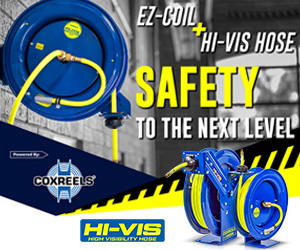
Education: Keeping Skills Sharp
By Diane M. Calabrese / Published November 2015

Henry Ford (1863–1947) is often given credit for promoting the concept of occupational education in the United States. As he saw it, employees given the opportunity to keep learning and refining their skills would be more versatile should economic or seasonal downturns require them to switch jobs or employers.
Yet the value of education and lifelong learning has been recognized for millennia and across cultures. Recall Aristotle and Plato, for instance. Or jump ahead 1400 years to the 11th century and remember the trade guilds in Europe that set up schools for children.
In the 21st century, myriad opportunities for learning make choosing among them perhaps the most difficult thing. Colleges and universities reach out to employed adults. Professional societies, certification bodies, and employers themselves also develop programs. How does an individual industry member—whether anchored as a contractor, a distributor, or a manufacturer—decide which venue will be most beneficial?
One way would be to consider what two members of our industry—each with great expertise in lifelong learning—have to say. Dr. Marlo Dean, senior support services manager at Kärcher North America in Camas,
WA, and Doug Rucker, president of UAMCC and the owner of Clean and Green Solutions in Porter, TX respond to five questions.
Cleaner Times (CT): Is there one setting or tool (e.g., formal coursework, online learning, on-site immersion) that you recommend above all others for keeping skills sharp?
Dean: In regard to the pressure-washer industry it is the equipment manufacturers that offer technical and sales training on their products. Many offer certification courses, giving classifications for level of training and type of course attended. These are formal hands-on classes. We have attempted online learning, but it was not successful because our technicians want hands-on, which is the best form of training for technicians.
Rucker: Attending training, networking, and educational events throughout the year—hosted by the various organizations—I feel are some of the best ways to keep learning. I usually attend about four to five training events put on by the professional association I lead every year. Being able to see new equipment demonstrations, networking with other contractors, and the classroom trainings these events offer, help us to keep our skills sharp and up-to-date on cutting edge trends in our industry.
CT: How important is certification for verifying knowledge?
Dean: It is my opinion that certification associated with training is an incentive for attendance and gives the trainee official documentation that he is trained, which can help during litigation and job advancement. If there is an injury from the repair of equipment, training certification documentation will help in your company’s defense during a litigation liability claim. The company can verify that they have trained technicians that are certified and at what level. If someone is injured while using a pressure washer and it was just repaired by a dealer or distributor, [the dealer or distributor will be better prepared for the incident with] records to prove the technician performing the repairs has been trained or certified to perform the work. (CT note: Dr. Dean shared a copy of a certification program for service technicians at Kärcher as an example. Professional organization membership offers a way to meet competitors as colleagues and to share examples for training.)
Rucker: In my opinion certification is extremely important, especially from the customer’s viewpoint. We have been awarded many contracts over our competition simply because we are certified through the UAMCC.
Let’s face it, most higher-end clients are going to buy due to trust over price. Certification helps to build that trust. Certification verifies that trust—in that it documents you have the knowledge and professional equipment to complete the job in a timely and safe manner.
CT: Can you cite an example of a particularly good method for continuing education/keeping skills sharp that you have used and tell us what makes it valuable?
Dean: Part of a good certification training program should require continuing education credits to keep [one’s] certification status. I have a medical background and after finishing medical school if we passed all of our testing and internship we received a license to practice. One of the requirements to maintain the license was to take 15 hours of approved continued education classes. I had to show proof of completing these classes when submitting payment each year to renew my license. This keeps you updated on new technology and skills, which can help you succeed.
Rucker: Participating in forums like Pressure Washing Institute, Power Wash Network, Window Cleaning Institute, UAMCC Forum, and a variety of different Facebook groups on a daily basis, is another great avenue for continuing education and keeping our skills sharp.
CT: How does continuing education keep the bottom line strong?
Dean: Education helps employees become more confident and thus their performance improves, which makes customers satisfied—giving the business good customer feedback and referrals. Satisfied customers bring more customers and business, which in turn grows your business—helping increase the bottom line. A company that fails to adequately train their employees to perform their job functions will have a difficult time keeping satisfied customers.
Rucker: I’m reminded of the old saying, ‘education without implementation is just entertainment’, so to attend and participate in these training events and then not take action would not only weaken the bottom line but eventually kill it. Awareness without action is nothing. Implementing what we learn keeps the bottom line strong.
CT: What should we have asked you?
Dean: (Is investment in training a good one?) Education is vital to any successful company because it shows you are concerned about the success of your employees and the importance of satisfied customers. Many companies feel that training is too expensive and do nothing. In the world of increasing litigation and competition, the cost of training is a good investment for the business and the employee. When facing a lawsuit and the plaintiff’s attorney asks for documentation on training for the employee that performed repair work on equipment that is in question, caused an injury, the documented training the business owner paid for is now priceless.
Rucker: I think you covered it fine.
Not Henry Ford’s Assembly Line
One hundred years ago, the assembly line was as much an innovation as the Model T (1913), Model A (1928) and V8 engine (1932). Today, the line is still present, but employees serve primarily as operators of computer controls (not as actual assemblers). Things change, as the founder of the Ford Motor Co. anticipated they would when he spoke to the value of education.
Employers that promote education, encourage employees to keep skills sharp, and recommend or require certification, are doing much more than keeping their businesses strong. They are also fostering a strong community and nation. The more flexibility derived from deep knowledge that current and prospective employees have, the more efficiently the employees work and the more independently they address problems.
Highly skilled employees strengthen a business because they work capably and safely. (The biggest concern an owner generally has about competent employees is that they will be lured away by another business.)




